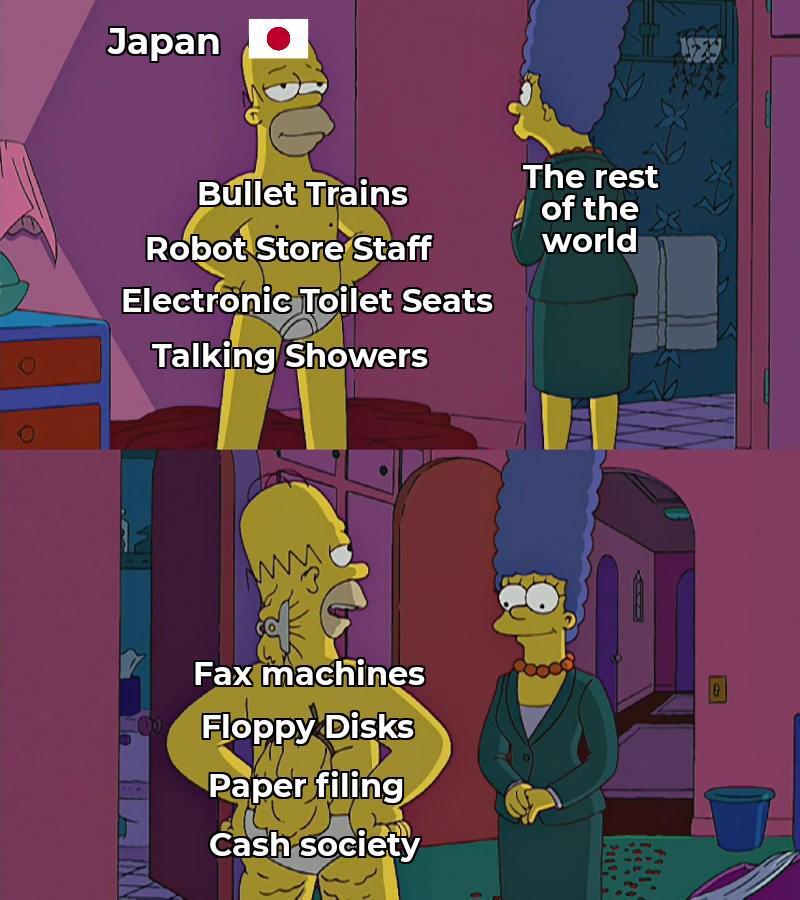this post was submitted on 28 Nov 2023
1154 points (95.5% liked)
memes
15366 readers
3355 users here now
Community rules
1. Be civil
No trolling, bigotry or other insulting / annoying behaviour
2. No politics
This is non-politics community. For political memes please go to !politicalmemes@lemmy.world
3. No recent reposts
Check for reposts when posting a meme, you can only repost after 1 month
4. No bots
No bots without the express approval of the mods or the admins
5. No Spam/Ads
No advertisements or spam. This is an instance rule and the only way to live.
A collection of some classic Lemmy memes for your enjoyment
Sister communities
- !tenforward@lemmy.world : Star Trek memes, chat and shitposts
- !lemmyshitpost@lemmy.world : Lemmy Shitposts, anything and everything goes.
- !linuxmemes@lemmy.world : Linux themed memes
- !comicstrips@lemmy.world : for those who love comic stories.
founded 2 years ago
MODERATORS
you are viewing a single comment's thread
view the rest of the comments
view the rest of the comments

Objectively, bitcoin is better for online transactions. It's not even all that safe for buying drugs - every transaction is recorded permanently in an open ledger, so it's actually much easier to trace (at least up to the end points where traditional currency is exchanged).
It might be less widely accepted, but that's only because of how insidiously endemic MasterCard and VISA are.
How is bitcoin objectively better? That's a pretty bold statement that needs some backing arguments.
They both have pros and cons, but until BTC have garanteed near instanteneous transaction confirmation, I don't see how that would work at the grocery store for example.
Bitcoin is objectively better based on the way it works. Subjectively, with the established infrastructure behind it, traditional card payments are artificially better - purely because of convenience. But on a level playing field bitcoin works better and is less susceptible to negative influences.
The grocery store is not typically an online transaction. I did specify online transactions. For buying groceries online, bitcoin would be better - there are no fees when trading bitcoin. When trading cash, there are no fees.
When putting cash into a business account, there are fees, and as almost all businesses put their money into an account they pay these fees. These cash deposit fees and card processing fees have grown in such a way as to entrap nearly all commercial transactions.
Objectively, it's better if there aren't fees, particularly when the fees are not proportional to the actual service the fees are supposed to represent.
That's a weird take. A system is better because it's free?
I re-read your comment and I missed the fact that you said online buying, sorry about that.
One advantage of traditional CC over Bitcoin is buyer insurance against fraud. If someone gets a hold of your Bitcoin wallet, he can take out everything and you have no recourse.
If someone steal your credit card and make fraudulent purchases, the transactions will be cancelled and you won't be left on the hook.
you're wrong for valuing peace of mind.
/s
That's credit, most online purchases are made with debit cards.
That's debit as well. I have protection against fraud on my debit card.
The credit companies do not insure against fraud, they simply take the money out of the merchant account and put it back into yours. Now it's the merchant who has no recourse, if they have already shipped the product. So the only difference between CC and crypto is who is typically left holding an empty bag in case of theft - the payer or the payee. Certainly not the banks!
I'd argue in terms of assigning responsibility, it seems more fair to expect you the customer to keep your digital wallet secure from thieves, than to expect the merchant to try guess every time whether the visitor to their online store happens to be using a stolen credit card.